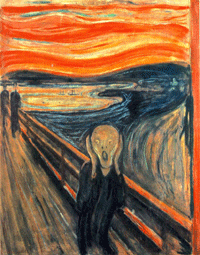Vertigo and dizziness, vision and balance problems – what does that mean?
Anxiety or mixed emotions that are difficult to describe are often expressed by “dizziness”. As a symptom of a general aid-searching with the doctor, “dizziness” is of a particularly good mixed significance: “Where there is no pain, there can be at least dizziness.”Stunned horror, drowsiness, vigilance, concentration problems, instability of walking and reaching, empty feeling at low blood pressure situations, hypoglycaemic metabolic situations, hyperventilation phenomena, are among other symptoms thereby expressed. As well as “weakness”, dizziness initially is a complaint:
Its further analysis with mapping to different types of vertigo leads to vertigo as a symptom. Under 50 years of age the frequency of dizziness is prevalent in 40% of large unselected patient groups below 50 years – over 50 years it increases to about 70%.
Dizziness in a stricter sense.
Dizziness in a stricter sense means a vertigo associated with feelings of displeasure, referred to disturbance of spatial orientation , or the perception of actually non-existent movement of the the environment or the body (turning / fluctuation) . Vertigo corresponds to a disturbance of perception and is associated with disruption of gaze stabilization (nystagmus), disruption of posture control (postural instability) and of the autonomic nervous system with nausea / vomiting. A loss of orientation in space, is mostly characterized by neurovegetative signs and unpleasant feelings as: Nausea, sweating, blood pressure swings, anxiety, dysequilibrium of the sensory systems of reference: eye, balance, somatosensory perception in the space of reference.Initially, dizziness is often a complaint that is blurry described and not a clear symptom, syndrome or disease entity.
The usually ambiguous information provided by the patient who suffers from “Vertigo” is to analyze only by means of a careful history in conjunction with neuro-ophthalmological and neuro-otologic examination. These differentiate firstly a peripheral-vestibular from a centrally-vestibular form of vertigo. Additional apparative studies are of course necessary. Episodic vertigo with balance disorders usually indicates acute dysfunction of the vestibular system [peripheral or central] with a characteristic explanation of disturbed interaction of sensory systems: visual, vestibular, somatosensoric. In this respect vertigo sensu strictiori is always an indication of dysfunction of these multimodally connected systems.
